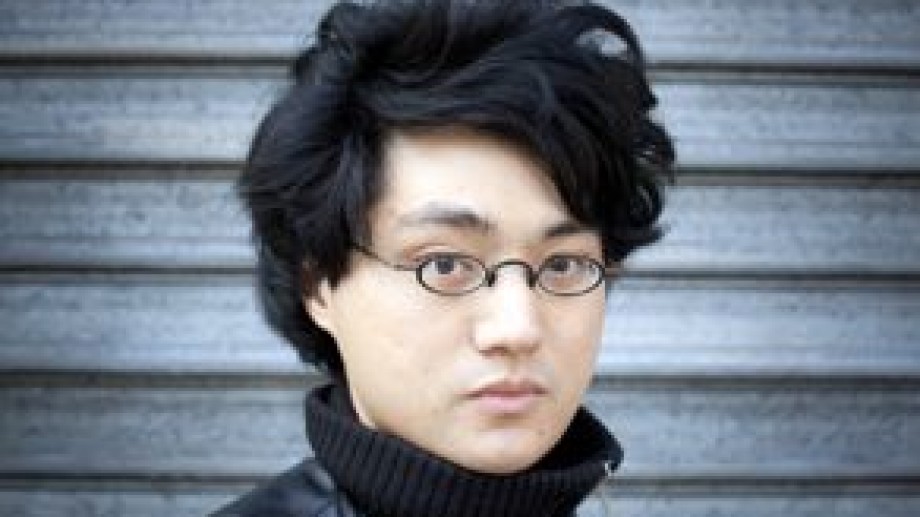
Golden Slumbers director Davy Chou.
Recalling the ghosts of a bygone age, emerging French-Cambodian filmmaker Davy Chou's Golden Slumbers sifts through the remnants of a civilization virtually wiped out by the Khmer Rouge and discovers what was once a thriving golden age of film in Cambodia. The 60s and early 70s produced a glorious period of cinema in the Southeast Asian country where audiences packed cinemas, especially in the country's capital, Phnom Penh. The film is screening in Film Society of Lincoln Center's series Old Ghosts, New Dreams: Cambodian Cinema, taking place April 19 – 25.
An aspiring filmmaker since his teen years, Davy Chou's own family lineage echoes the story of Cambodian cinema, which was destroyed by the Khmer Rouge. Producers, actors, writers, directors and virtually anyone whose pursuits ran afoul of the regime were killed. At its height, Cambodian cinema came to a halt and most of the talent that created and nurtured the industry were murdered. A few people managed to escape, including Chou's aunt, now living in Paris, who recalls the glory days and revealed to Chou that his own grandfather had played an important part in the country's cinema.
Chou became interested in filmmaking after accidentally attending a screening at home in France, decades after his grandfather helped pioneer the art form in his ancestral home. Golden Slumbers is Chou's feature directorial debut, though he has also worn the hats of most areas of filmmaking, including producer, writer and cinematographer. While Golden Slumbers spotlights Chou's discovery of his filmmaking lineage, the young filmmaker is clearly looking to the future.
FilmLinc Daily: Undoubtedly there were big challenges in recalling the Cambodian film industry because so much of it was destroyed. Talk about your challenges in making this film…
Davy Chou: The challenge was how I was going to tell this story and trace this story. So it's not so much about the history of Cambodian cinema, but the memory of Cambodian cinema. The music, old stories and the memories of people who were there are important. Something I had to keep conscious of was that I never heard a detailed story of them making the films. The [Khmer Rouge] did kill most of the actors, producers, directors, writers, etc., though a few of them managed to escape the country. The choice of the film's style is influenced by the fact that most of the main people involved are no longer here…

A scene from Davy Chou's Golden Slumbers.
FD: Talk about your stylistic choice. The film relies on oral history and recollections of Cambodia's cinema from survivors, but also fans.
DC: The lack of choice becomes the choice because it's about the collective memory and the collective history of the country. It was fascinating that when I'd meet someone who had been in the audience, usually over 50 years of age now, I'd ask them about their memories and they'd start telling me about films as if they had seen them the day before, even though they're talking about films that existed over 40 years ago. We would also visit the places that used to be theaters. There were over 30 of them in Phnom Penh, some of which are karaoke [venues] now. And that told me a lot about how important these films were for people at the time.
One of the only forms of entertainment during the war was going to the cinema and [those] dreams were stolen. But in some ways their memories are extremely precious. It was easy, in a way, to recapture those memories… So that's why the film is called Golden Slumbers. There was this golden age of film that they wanted to destroy, but it was not completely dead. It's just sleeping and waiting to be awakened.
It was amazing when it was shown at the Cambodia International Film Festival to a packed audience. It was very emotional and the people in the film were very proud.
FD: You have been a producer in addition to working as a director on this film and a previous short film, as well as a writer, etc. What do you want to do going forward?
DC: Oh, I don't know… My uncle, who was a son of my grandfather and a producer, would come three times a year and would share with me the action films of the 90s. Basically, that's how my passion for film started. And then, when I was 12, I accidentally went into a theater to see a film that I didn't know anything about, which was Heat by Michael Mann. And after this experience, I started to watch a lot of films and it really [stimulated] my passions. And I started to make short films at 17 in high school.
FL: Now that you've completed this documentary, what kind of stories are you planning to do going forward?
DC: I'd like to continue exploring many areas that are related to the organization and creation of film. I'm also working on a film restoration project. But if I had to choose one area of filmmaking, then it is to be a director. For the moment I'm writing a feature fiction film. I think my greatest interest is in fiction because it was what I used to love watching growing up. But I may do documentary again someday.
Discover is a weekly column on FilmLinc Daily devoted to spotlighting emerging film talent. Read our past interviews with director Penny Lane (Our Nixon), director Frances Bodomo (Boneshaker), and actress Amy Morton (Bluebird).



